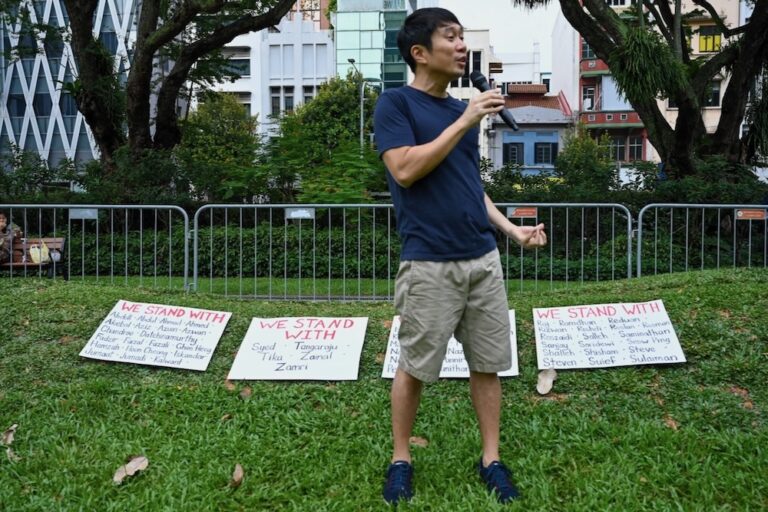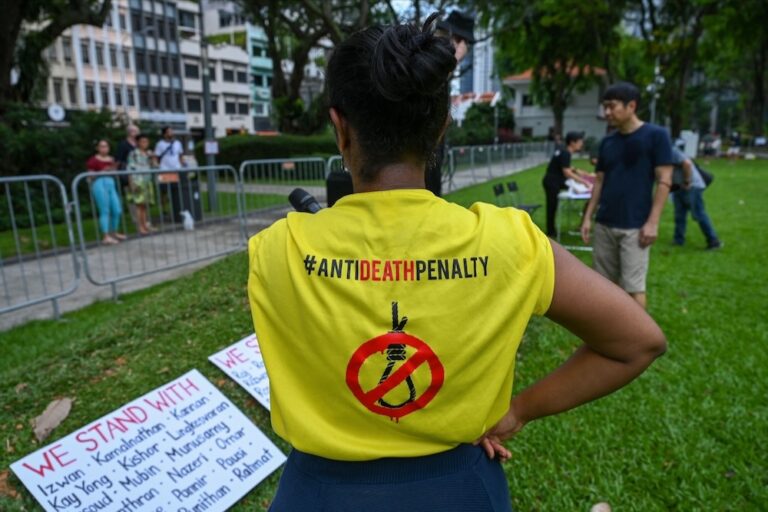(SEAPA/IFEX) – A review of the Singapore Penal Code will see further curtailment of the already limited freedoms in the city-state notorious for its intolerance for basic free expression and assembly rights. The government is introducing 19 new offences and expanding the scope of 19 existing offences, to “bring the Penal Code up to date, […]
(SEAPA/IFEX) – A review of the Singapore Penal Code will see further curtailment of the already limited freedoms in the city-state notorious for its intolerance for basic free expression and assembly rights.
The government is introducing 19 new offences and expanding the scope of 19 existing offences, to “bring the Penal Code up to date, and make it more effective in maintaining a safe and secure society in today’s context,” read a statement on the website of the Ministry of Home Affairs.
The Southeast Asian Press Alliance (SEAPA) notes with concern some proposed changes that will limit speech in an already stifled environment, even encroaching upon the final frontier for free expression afforded by the Internet.
In particular, the government intends to expand certain sections to cover offences committed via the Internet and other electronic media, namely: section 298, which makes it an offence to deliberately “wound the religious feelings” of anyone, through words or other acts; section 499, which touches on defamation; and section 505, which covers “statements conducing to public mischief”.
In addition, section 298 may be expanded to include the “wounding of racial feelings”. The ministry said this will “provide another option to the Sedition Act, to charge such offenders in future cases”, referring to the September 2005 case of two men charged under the Sedition Act for posting racist comments on the Internet. One was eventually imprisoned for one month while the other was imprisoned for a day and fined S$5,000 (approx. US$3,200). The maximum prison sentence for such an offence is three years, but repeat offenders can be imprisoned for up to five.
There are also plans to enact a new offence that covers any action considered likely to cause racial or religious disharmony, or promote enmity on grounds of race or religion.
Another amendment that may affect Internet users is a new provision to make it an offence for anyone, while outside the country, to abet an offence committed within the country.
Also of particular concern is the amendment to section 141, on “unlawful assembly”. Already, outdoor gatherings of more than four people require a police permit, which critics see as a means of discouraging mobilisation for public discourse. With the amendment, a gathering of five or more people, whose “common object is to commit ANY offence, and not just those relating to public tranquility”, will be deemed an “unlawful assembly” [emphasis by the Ministry].
The proposed amendments have been posted on a website ( http://www.reach.gov.sg/olcp/asp/ocp/ocp01d1.asp?id=3683 ). Singaporeans have until 9 December to make their views known. The amendments will be tabled to Parliament in early 2007.


